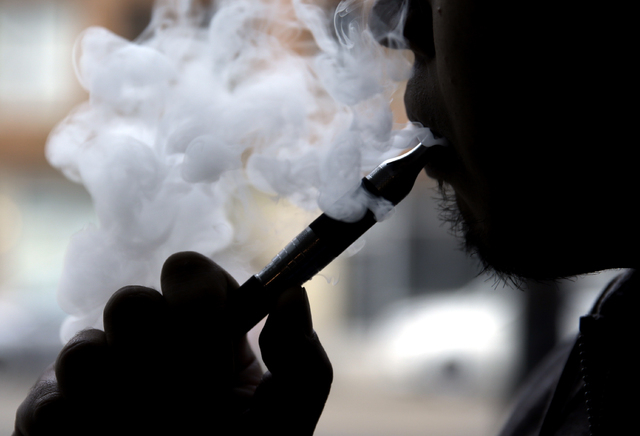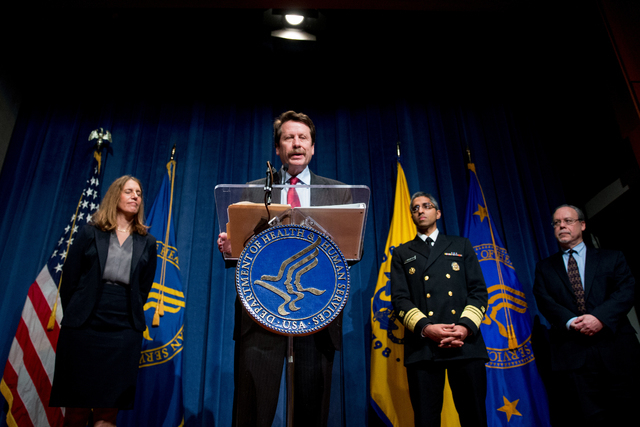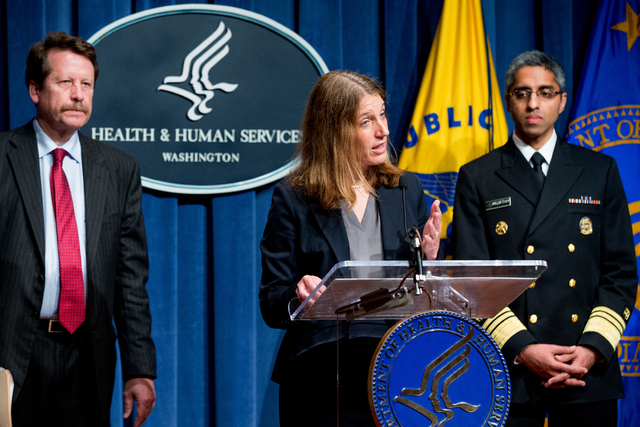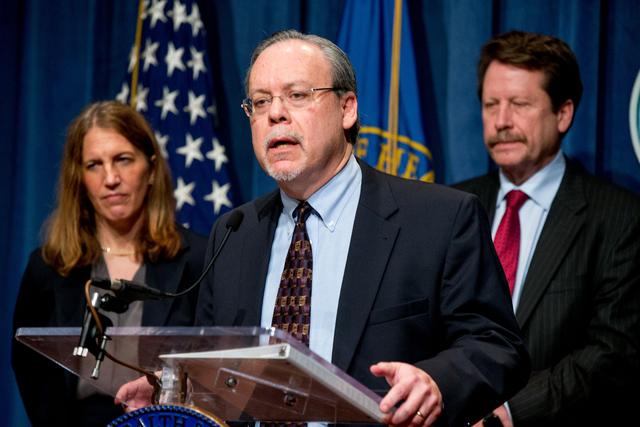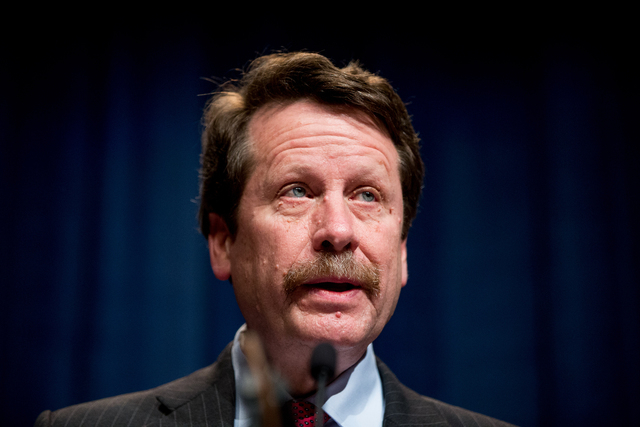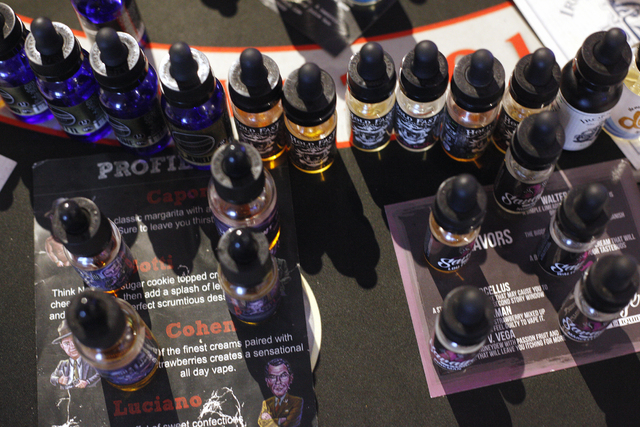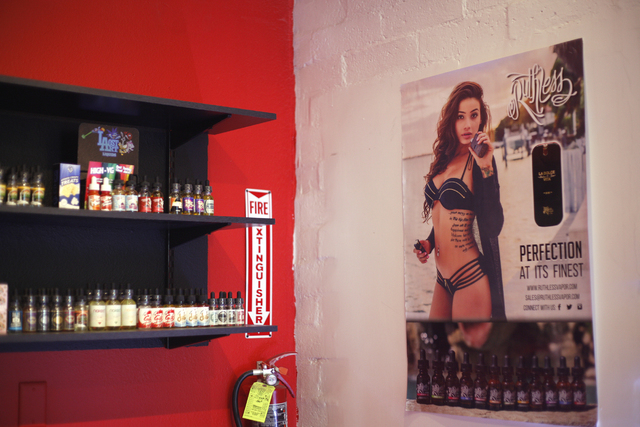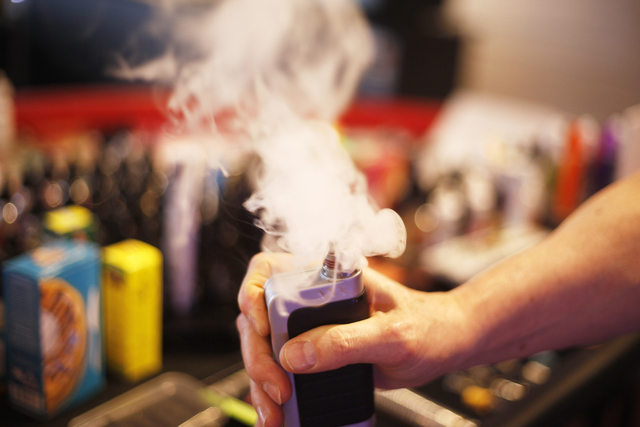FDA announces rules that could upend e-cigarette industry
Blue Diamond Vapors owner Jamie Homampour doesn’t hesistate to correct people who confuse smoking and vaping.
“They’re very different products,” he said. “The research behind them is pretty conclusive that they’re different products.”
The owner of the Las Vegas vape shop has spoken out against state legislation he said unfairly targeted e-cigarettes and has, like many other shop owners, backed legislation banning the sale of vaping products to minors.
He said it’s unclear how his business will be affected by new regulations announced Thursday by the federal government that could upend the multibillion-dollar e-cigarette industry and for the first time require e-cigarette makers to submit their products for a safety review.
E-cigarettes are battery-powered devices that turn liquid nicotine into an inhalable vapor. Though nicotine can be addictive, e-cigarettes lack the chemicals and tars of burning tobacco. Yet the devices have not been extensively studied, and there’s no scientific consensus on any potential benefits or harms from “vaping.”
Before brands are allowed to stay in the market, regulators would have to check the ingredients, design and flavor of the fast-growing devices, which have found a foothold with teenagers.
“Millions of kids are being introduced to nicotine every year, a new generation hooked on a highly addictive chemical” Health and Human Services Secretary Sylvia Burwell said. “We cannot let the enormous progress we’ve made toward a tobacco-free generation be undermined by products that impact our health and economy in this way.”
The rules issued by the Food and Drug Administration would also extend long-standing restrictions on traditional cigarettes to a host of other products, including e-cigarettes, hookah, pipe tobacco and nicotine gels. Minors would be banned from buying the products.
Homampour, whose shop employs five people and produces vaping liquids, said he’ll confer with experts to grasp the meaning of the hundreds of pages of documents the FDA released in relation to the new regulations.
More than 15 percent of high school students report using e-cigarettes, up more than 900 percent over the last five years, according to federal figures. High school boys smoke cigars at the same rates as regular cigarettes.
Beginning in August, retailers will be prohibited from selling the tobacco products to those under 18, placing them in vending machines or distributing free samples. Although nearly all states already ban sales of e-cigarettes to minors, federal officials said they will be able to impose stiffer penalties and deploy more resources to enforce the law.
A law banning e-cigarette sales to minors was signed by Gov. Brian Sandoval in June and took effect in October.
An effort to ban e-cigarette use everywhere cigarette smoking was banned under the Nevada Clean Indoor Air Act drew criticism from vaping advocates and didn’t pass during the last legislative session.
“When the Nevada Clean Indoor Air Act was passed, electronic cigarettes were not widely marketed and therefore not included in the provisions of the act. However, many businesses and organizations (including the health district) have voluntarily chosen to include e-cigarettes in their smoke-free policies,” said Southern Nevada Health District spokeswoman Stephanie Bethel.
The FDA action comes five years after the agency first announced its intent to regulate e-cigarettes and more than two years after it floated its initial proposal.
Public health advocates applauded the decision.
The vaping industry says the lengthy federal reviews would be time-consuming and costly and could put many smaller companies out of business.
Ray Vuong, one of the owners of Truvape in Las Vegas, said he believes any regulations that could limit the number of e-cigarette liquid flavors and the number of producers could hurt local businesses and benefit major players in the tobacco industry.
The regulations “will cause a modern-day prohibition of products that are recognized worldwide as far less hazardous than cigarettes,” said Gregory Conley, president of the American Vaping Association. “If the FDA’s rule is not changed by Congress or the courts, thousands of small businesses will close in two to three years.”
The agency has stumbled before in its efforts to regulate the space. In 2010, a federal appeals court threw out the agency’s plan to treat e-cigarettes as drug-delivery devices rather than tobacco products.
House Republicans are already pushing back. A House spending committee last month approved industry-backed legislation that would prohibit the FDA from requiring retroactive safety reviews of e-cigarettes that are already on the market and exempt some premium and large cigars from those same regulations. E-cigarette products introduced in the future would still undergo the safety reviews.
Lawmakers on Capitol Hill have long enjoyed a close relationship with the tobacco industry, which has already given more than $1.8 million to members of Congress this election cycle, according to the Center for Responsive Politics.
Vuong, a former smoker, has been smoke free for about a year and a half, and he said vaping has helped him kick the habit.
“It’s helped me,” he said. “It’s helping a lot of the customers that are coming in here.”
E-cigarettes sales grew to an estimated $3.5 billion in 2015, according to Wells Fargo.
Las Vegas Review-Journal writer Pashtana Usufzy contributed to this report, Contact her at pusufzy@reviewjournal.com or 702-380-4563. Find @pashtana_u on Twitter.



